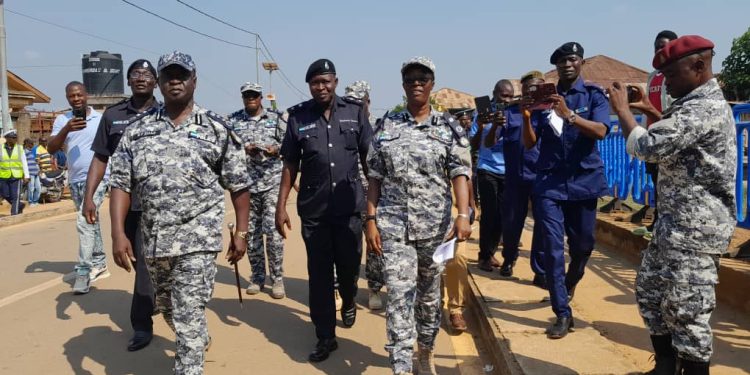By Sulaiman Aruna Sesay
Sierra Leone is a West African country with a history of challenges in the realm of security. For decades, its citizens have grappled with various forms of security challenges, including terrorism, armed robbery, and gang violence. In recent times, there has been a renewed effort by citizens and leaders to tackle these ongoing security concerns.
Indeed, the cooperation and collaboration of citizens and leaders have played a significant role in the recent decline of security issues in Sierra Leone. From the top-down, there have been several measures taken to combat the numerous forms of security threats in the country. These range from the formation of community watch groups to increased participation in peacekeeping missions within and outside the region.
It is no news that Sierra Leone has seen a significant reduction in security threats compared to what it was just a few years ago. There is still much to be done in improving security for its citizens. One of the foremost issues is inadequate security personnel. There is a shortage of well-trained and equipped security personnel, which has created a significant gap in the ability of the authorities to combat security challenges.
Despite the efforts of the government, there are still areas where citizens live in constant fear of security threats. This is due in part to the inadequate infrastructure, which makes it challenging for security personnel to move and carry out their duties effectively. Also, citizens outside the capital city of Freetown have and continue to be underrepresented in the country’s security sphere. This, in itself, constitutes a significant security risk.
With all these issues, it would be remiss not to acknowledge the efforts of the Sierra Leonean government in trying to bring about lasting peace and security. It has taken several steps to ensure this, such as engaging in peace negotiations with the various warring factions within the country, collaborating with international aid organizations to train security personnel, and investing in infrastructure improvements.
It is essential to recognize that a lot more needs to be done in the area of security for Sierra Leone to become a safe country for its citizens. Although citizen and leadership participation is crucial, there is still a need for the government to prioritize security by investing more in the sector. This includes providing adequate resources, training and equipping security personnel, and upgrading infrastructure.
The collaboration of citizens and leaders to address Sierra Leone’s ongoing security concerns is a step in the right direction. While it has yielded some success, there is still much more to be done. The government must show more commitment to the security of its citizens and prioritize the sector by investing adequately in it. Only then can Sierra Leone become a truly secure country for its people.













